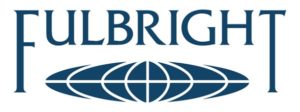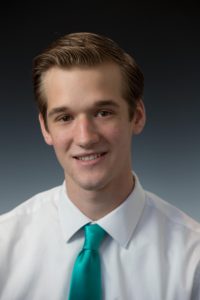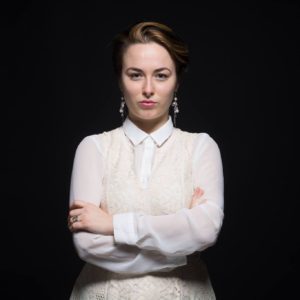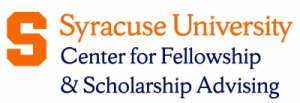Fulbright Semi-Finalists: Research Around the World

The Fulbright U.S. Student Program offers research, study and teaching opportunities in over 140 countries to recent graduates and graduate students. Syracuse University has fifteen semi-finalists who have applied to Open Study/Research Awards, Teaching Assistant Awards, Fulbright-National Geographic Digital Storytelling Fellowship and the J. William Fulbright – Hillary Rodham Clinton Public Policy Fellowship. These semi-finalists are now waiting to hear back from the deciding committees in each foreign country where they have applied to work and learn.
 Geoffrey Vaartstra, a semi-finalist for a research Fulbright to Chile, studies mechanical engineering in the College of Engineering and Computer Science and hopes to earn a Ph.D. in materials science and engineering. Geoff explains his reason for applying: “I applied for the Fulbright Chile Science Initiative after studying abroad in Chile and researching under Professor Rodrigo Escobar at Pontificia Universidad Católica de Chile. I loved the country and enjoyed the research; my proposal is to return to work with Professor Escobar on the same project. My proposed project is to design, install, and characterize a prototype fog catcher with solar pumping system in Alto Patache, which is a small region within the Atacama Desert in Chile. I will design for parameters such as holding tank volume, area of fog catching mesh, area of solar panels, and distribution control systems using data previously gathered on the region. Once the prototype is in place, I will collect data on its performance to publish a paper detailing the results and a plan to extrapolate the prototype to a larger scale system.” The Atacama Desert is rich in solar potential but has a scarcity of water. By coupling a fog catcher to a solar-powered pumping system, the device is “grid independent” and allows communities to sustain themselves with their own resources.
Geoffrey Vaartstra, a semi-finalist for a research Fulbright to Chile, studies mechanical engineering in the College of Engineering and Computer Science and hopes to earn a Ph.D. in materials science and engineering. Geoff explains his reason for applying: “I applied for the Fulbright Chile Science Initiative after studying abroad in Chile and researching under Professor Rodrigo Escobar at Pontificia Universidad Católica de Chile. I loved the country and enjoyed the research; my proposal is to return to work with Professor Escobar on the same project. My proposed project is to design, install, and characterize a prototype fog catcher with solar pumping system in Alto Patache, which is a small region within the Atacama Desert in Chile. I will design for parameters such as holding tank volume, area of fog catching mesh, area of solar panels, and distribution control systems using data previously gathered on the region. Once the prototype is in place, I will collect data on its performance to publish a paper detailing the results and a plan to extrapolate the prototype to a larger scale system.” The Atacama Desert is rich in solar potential but has a scarcity of water. By coupling a fog catcher to a solar-powered pumping system, the device is “grid independent” and allows communities to sustain themselves with their own resources.
Geoff prepared for the application process by spending nearly two months drafting and editing his proposal and personal statement. Because it is a research proposal, he had to coordinate with Professor Escobar and secure an affiliation letter from his institution in Chile. CFSA aided him in drafting and proofreading his materials. He met with Jolynn Parker twice a week for those two months, and he says the process really helped to develop his writing skills through the application process. Geoff is excited about how the Fulbright award can help his professional development: “After I earn a Ph.D. in materials science, I hope to work as a researcher developing innovative nanotechnology solutions to water and energy issues. Specifically, I want my work to have an impact in Latin America and I believe that the Fulbright would be an invaluable experience for the connections I would make in the engineering community as well as a source of inspiration for my future research.”
 Farrell Greenwald Brenner, another semi-finalist for a research Fulbright to Poland, is a Women’s & Gender Studies and Citizenship & Civic Engagement major. Farrell applied for the Fulbright to Poland because she felt she had a lot left to explore in her research, more than she could do with the few remaining months of her time at SU. Farrell explains her research :“I am researching the Aryan- and Polish-passing women and girl couriers in the Jewish resistance movements in Nazi-occupied Poland, who are under-documented and ignored figures in Holocaust history. Fortunately, there are archives and research institutions in Poland that have worked to preserve materials and testimonies related to ghettos and their resistance movements. I hope to one day have as a Holocaust historian. The experience of self-directed, independent, original research will be invaluable toward that end. I know that I want to further develop and explore my Jewish identity, which I see as being very connected to my research; it’s also a part of my work as an activist. ” Farrell also went through several drafts of her personal statement and research proposal with the help of CFSA. She received a lot of writing support, especially in terms of presenting herself as a good candidate. Having the support of an advisor and the discipline of deadlines allowed her to write organically while still adhering to the style and language necessary of a Fulbright application.
Farrell Greenwald Brenner, another semi-finalist for a research Fulbright to Poland, is a Women’s & Gender Studies and Citizenship & Civic Engagement major. Farrell applied for the Fulbright to Poland because she felt she had a lot left to explore in her research, more than she could do with the few remaining months of her time at SU. Farrell explains her research :“I am researching the Aryan- and Polish-passing women and girl couriers in the Jewish resistance movements in Nazi-occupied Poland, who are under-documented and ignored figures in Holocaust history. Fortunately, there are archives and research institutions in Poland that have worked to preserve materials and testimonies related to ghettos and their resistance movements. I hope to one day have as a Holocaust historian. The experience of self-directed, independent, original research will be invaluable toward that end. I know that I want to further develop and explore my Jewish identity, which I see as being very connected to my research; it’s also a part of my work as an activist. ” Farrell also went through several drafts of her personal statement and research proposal with the help of CFSA. She received a lot of writing support, especially in terms of presenting herself as a good candidate. Having the support of an advisor and the discipline of deadlines allowed her to write organically while still adhering to the style and language necessary of a Fulbright application.
